Profiles from Western European and Other Countries
Survivors and practitioners
Recovery through Comprehensive Care
Proyecto Esperanza-Adoratrices (Spain)
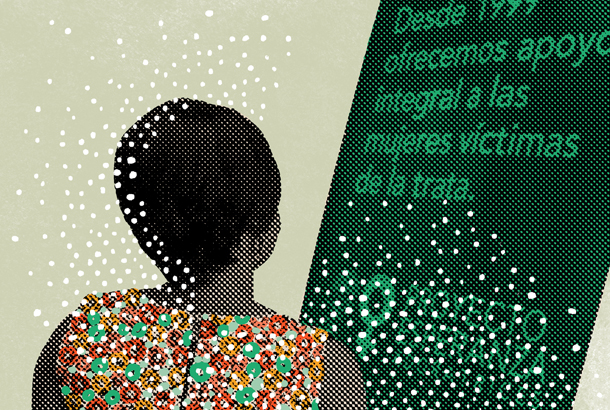
Illustration by Vérane Cottin, photograph by Proyecto Esperanza-Adoratrices
Astrid, a Colombian high school student, was groomed by her trafficker on Facebook. Pauline, a 38-year-old from Gabon, was offered a “dream” job by her boss in Guinea.
Both these women were coerced into human trafficking through seemingly innocuous means. Both survived with the help of Proyecto Esperanza-Adoratrices.
Astrid had moved to Spain with the promise of marriage and a visa. Instead, her trafficker forced her into helping him steal and resell 4,000 euros of clothes a day. After six months, and several shoplifting arrests, Astrid, with the help of the Madrid police and Proyecto Esperanza-Adoratrices, was freed and returned voluntarily to Colombia. After two months of domestic servitude in Madrid, Pauline tried to escape, but her trafficker locked her in a room and took everything from her, including her passport. Finally, at Barajas airport, she escaped and was assisted by Proyecto Esperanza-Adoratrices.
Adoratrices was founded in 1856 by Saint María Micaela to promote the human rights and well-being of women victims of various forms of slavery. In 1999, Adoratrices launched Proyecto Esperanza in Madrid, as a specific initiative focusing on the comprehensive assistance and support to women victims of human trafficking for all purposes of exploitation. Since then, it has fulfilled this mission —including with financial support from the United Nations Voluntary Trust Fund on Contemporary Forms of Slavery— with a focus on prostitution and trafficking for sexual exploitation.
Addressing Multiple Forms of Exploitation
"The consequences of these crimes on their victims are profound and reach all aspects of their person and, therefore, they need comprehensive care to enable them to regain control over their own lives,” says Marta Gonzalez, the awareness and advocacy programme coordinator of Proyecto Esperanza-Adoratrices.
Proyecto Esperanza also has a mandate to analyze trends, and conduct evidence-based advocacy and awareness raising in order to implement human rights-based anti trafficking policies in Spain.
In 2021, Proyecto Esperanza assisted 202 women, and 7 of their children. They came from 32 different countries, most of them in Latin America and Africa. Two-thirds of the assisted women and girls were victims of trafficking for the purpose of sexual exploitation, while the rest were victims of other forms of trafficking, including trafficking for labour exploitation, forced marriage, and for forced criminality. Many suffered several types of exploitation.
“It is essential that these other forms of exploitation be recognized by key actors and that their capacity to detect them be strengthened. It is also necessary to create intersectoral alliances that favor the detection of cases in order to refer them to specialized services," according to Gonzalez.
As such, Proyecto Esperanza also participates the advocacy and awareness-raising project, #TambienEsTrata, which aims to influence regulations, public policies and protocols for action against human trafficking and the protection of women who have suffered all forms of exploitation in Spain.
“There needs to be a system for assessing the damages and losses on a physical, psychological and moral level, applicable to all victims of trafficking, in which the compensation is objectively, fairly and adequately quantified,” Gonzalez said.
“Until then, we will keep fighting.”
Proyecto Esperanza-Adoratrices received its first grant from the United Nations Voluntary Trust Fund on Contemporary Forms of Slavery in 2008.
A Journey to Freedom
Coalition to Abolish Slavery and Trafficking (United States of America)
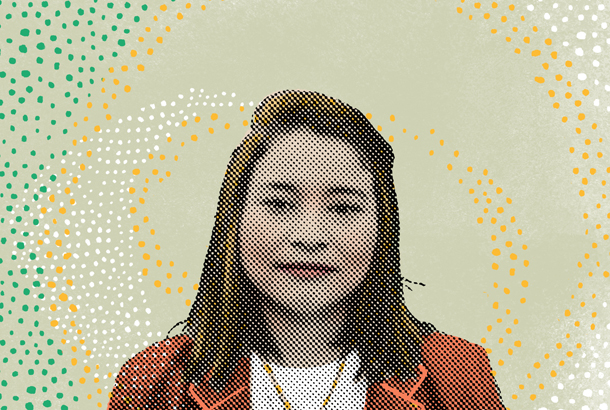
Laura, survivor (illustration by Vérane Cottin, photograph by CAST)
Laura fell in love with a woman while she was studying in college in Mexico. The woman convinced Laura to move with her to the United States to start a job as cashier. She said that it was easy money and that Laura would help run the business. It was barely two weeks before Laura was moved from being a cashier at the bar to being trafficked by a cartel and sexually abused and exploited at the back of the bar.
“Those were the worst days of my life…so many different men and the sick games they would play with our minds”, says Laura. When the cartel realized Laura and other victims wanted to leave, they locked them in a garage, where they were abused and forced to take drugs. One day, she managed to escape. A neighbour found her wearing nothing but underwear and called the police. Following her escape, Laura lived on the street for some time, before coming across the Coalition to Abolish Slavery and Trafficking (CAST).
“Proud of Where I am Today”
The organization provided Laura a place in their emergency shelter, specifically designed for survivors of human trafficking. She received free counseling, medical and mental health care services, education, and more.
“Homelessness and trafficking are inextricably linked. 94% of survivors were homeless when they came to CAST, which makes access to safe shelter essential for survivors to begin their journey to freedom”, says Nagwa Ibrahim, CAST Legal Director.
“CAST has connected me to the tools I need to manage my PTSD [post-traumatic stress syndrome] and trauma, so I can move past it”, says Laura. After attending skills training, with the help of the organization, she became a counsellor, and now works with people struggling with drug addiction. “I am proud of where I am today, of the work I have done on my growth and freedom.”
With support from the United Nations Voluntary Trust Fund on Contemporary Forms of Slavery, CAST assesses and addresses the full spectrum of legal and social services that survivors of human trafficking need. CAST has helped many survivors like Laura obtain formal recognition of their status as trafficking victims in the United States, which is essential to access vital services and prevent re-exploitation.
“As an agency, we are deeply committed to a human rights framework and the public health model of intervention and prevention. Our approach is based on the direct feedback we receive from survivors in our programs,” says Nagwa Ibrahim.
Coalition to Abolish Slavery and Trafficking (CAST) received its first grant from the United Nations Voluntary Trust Fund on Contemporary Forms of Slavery in 2000.
Getting Victims Out of Exploitation
Comité contre l’esclavage moderne (France)
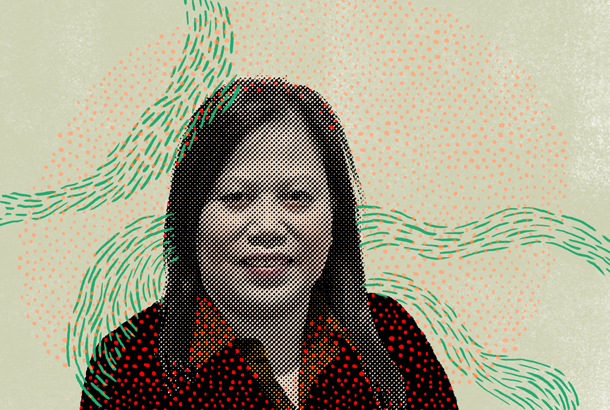
Zita Cabais (illustration by Vérane Cottin, photograph by ISTAC)
Born into a working-class family in the Philippines, Zita Cabais became a domestic worker at age 13. Seeking a way out of poverty, and needing additional funds to pay for her children’s studies, she pursued work opportunities abroad. Her trip was planned by a recruitment agency and was supposed to unfold seamlessly. Despite the 10,000 USD she paid, she had to rely on smugglers to get to France. “I thought I was going to Paris, but, once in Hungary, I discovered that my visa did not allow me to go further,” recalls Zita in an interview to Street Press.
Once in Paris, Zita was hired by a rich family as a domestic worker, where she worked from 7am to after midnight for many years. Eventually, her employers stopped paying her and confiscated her passport. She worked for two years without pay. “I was not allowed to talk to strangers, especially the building caretaker who saw me pale and slimmed. I was only a shadow of myself.”
Zita finally left and an acquaintance directed her to the Comité Contre l’Esclavage Moderne (CCEM), who helped her learn about her rights. CCEM also gathered documentation to file a complaint against her former employers, who were ultimately convicted by the Court of Appeal of Paris.
As for Zita, she joined a trade union and is now raising awareness among domestic workers on their rights and possible remedies.
Helping Victims with Irregular Migration Status in France
Founded in 1994, CCEM has been at the forefront of combatting contemporary forms of slavery in France. Thanks to a grant from the UN Voluntary Fund on Contemporary Forms of Slavery, it is able to support hundreds of survivors every year to reintegrate into society, providing shelter, access to healthcare, and legal services to bring proceedings against exploiters.
Following the success of two of CCEM’s cases in the European Court of Human Rights, France introduced slavery, servitude and forced labour into its National Criminal Code in August 2013. Yet, the United Nations Committee on the Elimination of Discrimination against Women (CEDAW) remains concerned that insufficient resources are allocated to the National Action Plans against Trafficking in Human Beings. Rehabilitation and reintegration services for survivors of exploitation and forced labour are also lacking. CCEM’s work has been particularly vital for victims with an irregular migration status in France, who often have little or no access to government services and legal avenues for redress.
CCEM is determined to make systemic change. “I encourage and support men and women to step out of the shadows and into the light as strong and worthy survivors… I believe we can help those who have been trafficked to use their experiences as a springboard to help more victims escape”, says member of the Board of Directors and survivor Zita Cabais. Now, she is one of the 21 members of the International Survivors of Trafficking Advisory Council (ISTAC), a commission of the OSCE Office for Democratic Institutions and Human Rights.
The Comité contre l’esclavage moderne (CCEM) received its first grant from the United Nations Voluntary Trust Fund on Contemporary Forms of Slavery in 2002.
Delivering on a Promise for a Better Life
BeFree Social Cooperative (Italy)
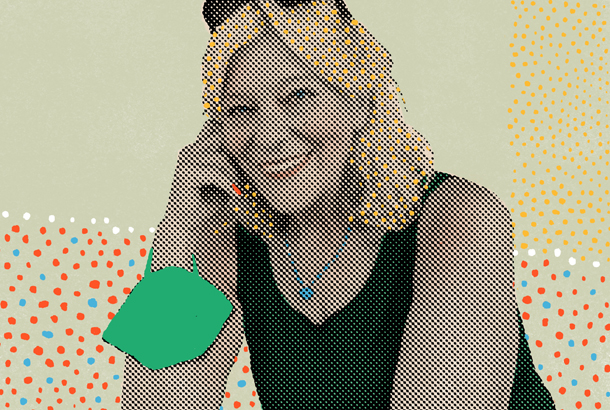
Oria Gargano, President of BeFree Social Cooperative (illustration by Vérane Cottin, photograph by BeFree Social Cooperative)
An orphan, Chioma* lived in Benin City with her uncle and his wife. They demanded money from her, forcing her to sell water after school. They also physically abused her. One day, her uncle slashed her with a knife and threw her out of the house. A woman approached her at church, offering to help her travel to Italy, where she could find a job as a shop clerk or cleaning lady. Before embarking on the journey, Chioma was taken to a priest to undergo a “juju” – a ritual that bonds a woman to her trafficker and to any debts she will incur. She travelled to Italy through Libya, living for several months in inhumane conditions, with little to no food or water, and physical and sexual abuse from her traffickers. Once in Italy, Chioma, like many other Nigerian young women, was forced into prostitution.
The International Organization for Migration (IOM) recorded an almost 600% increase in the number of potential sex trafficking victims arriving in Italy by sea between 2014-2017, with most victims arriving from Nigeria. Since 2018, that number has been declining according to the United Nations High Commissioner for Refugees (UNHCR).
Gender Sensitive Approach in Anti-Trafficking
“Trafficking in human beings for the purpose of sexual exploitation is a gender-based phenomenon”, says Oria Gargano, the president of BeFree Social Cooperative against Trafficking, Violence and Discrimination. The organization was founded in 2007 by a group of feminist women to help women victims of human trafficking.
“We work at the intersection of two themes – violence against women and trafficking in human beings for sexual exploitation – and our approach is fully gender sensitive”.
With support of the United Nations Voluntary Trust Fund on Contemporary Forms of Slavery, BeFree Social Cooperative was able to reach their goal of annual assisting around 40 women like Chioma. It provides holistic support to victims, with a focus on legal remedies and access to justice.
Thanks to the organization’s efforts, Chioma was able to access shelter, and received long-term psychological help. BeFree also supported her educational and employment endeavours. She now has refugee status, and a criminal case against her perpetrators was initiated.
“I studied Italian, I started working and I am happy. I want to work in the medical field in the future, as it has always been my dream,” says another former beneficiary Abiola*.
“They really helped me, gave me advice, and they stood by me as if I were their daughter”.
BeFree Social Cooperative against Trafficking, Violence and Discrimination received its first grant from the United Nations Voluntary Trust Fund on Contemporary Forms of Slavery in 2016.
Support for Vulnerable Workers
Kav LaOved / Worker’s Hotline (Israel)
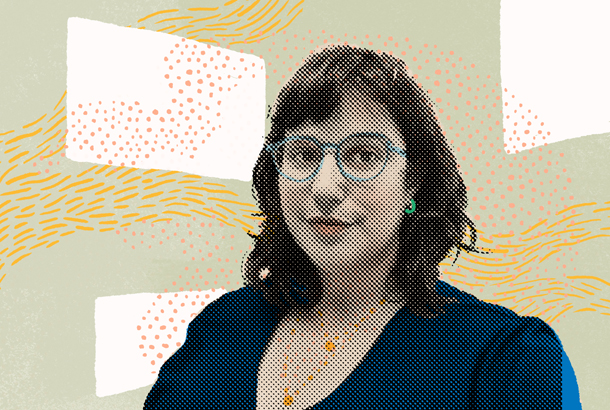
Adv. Meytal Russo, Staff member (illustration by Vérane Cottin, photograph by Kav LaOved)
In September 2017, six construction workers died in Israel in a single incident, bringing the number of work-related fatalities to 23 that year — 26 fewer than the previous year’s total of 49, but still plenty for the anti-labour trafficking organization Kav LaOved to take action. And the numbers stayed worryingly high: 84 died in 2019 and 65 workers were killed in 2020.
The International Labour Office (ILO) noted in 2021 that working conditions at construction sites in Israel led to relatively high fatality and accident rates due to poor compliance with safety and health regulations. Those killed or injured notably include Arab citizens of Israel, Palestinians from the West Bank and Gaza, and migrant labourers from abroad.
In the mid-aughts, organizations like Kav LaOved (KLO) started collecting the names and identities of those killed, one by one, as well as the location of their fatal work accidents. They also documented the names of the construction companies involved and the reason for the accidents.
Since its establishment in 1991, Kav LaOved has supported the most disadvantaged populations in the Israeli labour market: migrant workers, refugees and asylum seekers, Palestinians, Arab citizens of Israel and low-income Jewish Israelis.
K., who worked as a caregiver and sought assistance from KLO, paid 15,000 USD in brokerage fees in her country to get a visa to work in Israel. “I worked for two years just to pay back this debt. My first employer was a 92-year-old lady who needed to be cared for around the clock. The woman’s daughter lived in the same apartment and hardly let me leave her mother’s room, or fall asleep, at any time.”
K. finally escaped, and KLO helped her file a complaint with the police and get her work visa back. “It was recognised that my escape was an act of survival.”
Vulnerable Workers’ Voice in Israel
At the grassroots level, KLO’s direct assistance to individual workers spans every sector in the labour market, from house cleaners to agricultural workers to caregivers, to name a few. KLO’s assistance addresses a variety of issues, such as non-payment of wages and benefits, illegal firing during pregnancy, failure to deposit money in migrant worker deposit accounts, lack of work compensation, and labour trafficking.
“Thousands of migrant workers are employed under the harshest conditions, in which they are bound to their employers through draconian contracts, with the state's approval, and so work in conditions similar to slavery," said Adi Maoz, the organization’s Executive Director.
KLO received financial support of the United Nations Voluntary Trust Fund on Contemporary Forms of Slavery for its work supporting survivors of debt bondage, servitude, sexual violence, as well as physical and psychological abuse among documented and undocumented migrant caregivers working in Israel.
“Israel issued a plan to fight human trafficking (of workers), but has not yet managed to rise to the level of other countries that best fight trafficking.”
In the agricultural sector, KLO drew attention to the effect of the increase in rocket fire during the most recent escalations in conflict between Israel and Gaza on agricultural workers — many of whom come from Thailand under a bilateral agreement with Israel to work on kibbutzim (communal settlements) and other agricultural settings.
When it comes to the trafficking of Palestinians, KLO is at the forefront of change. The organization says the employment model for Palestinians in Israel results in these workers having to pay exorbitant and illegal brokerage fees to find work. This leads brokers and employers to exercise undue power over workers, who are left vulnerable to exploitation and profiteering by unscrupulous intermediaries, according to the ILO. A 2019 Bank of Israel report estimated that about 30 percent of Palestinians working with a permit in Israel paid illegal brokerage fees.
Kav LaOved has called on the Israeli government to put an end to labour policies and practices that force foreign labourers to work in perilous situations as well as to investigate all incidents of worker exploitation and initiate criminal prosecution where required.
Kav LaOved received its first grant from the United Nations Voluntary Fund on Contemporary Forms of Slavery in 2008.